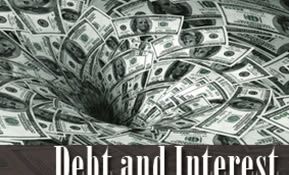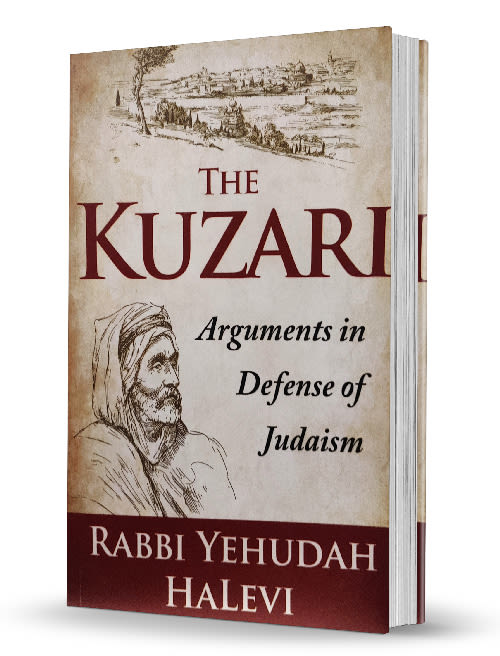
The Money Minefield
Borrowing money is like walking into a minefield – you know how you enter the situation, but you don’t know if you’ll ever be rescued...

Part 4 – Ethics of Basic Decency
Finding Favor in the Eyes of Hashem and Man
We can conclude that whenever a person is honest and responsible, he’ll always emerge unscathed from a trying situation because Hashem will come to his aid. He’ll suddenly find source of income and assistance, and people will readily take a liking to him and do things for him. Honest and responsible people have good reputations and thereby easily obtain loans with good conditions or find better paying positions. People are glad to help an honest and hard working person who tries to help himself. Oftentimes, they even forego money he owes them.
On the other hand, a dishonest person loses credit both with Hashem and with men. Since he lacks integrity, no one trusts him. Therefore, nobody will be willing to loan him additional money nor help him in any way.
One’s honesty and ethical standards are the factors that determine his or her success in life! Therefore, the first step in overcoming debt is to strengthen one’s honesty and ethical standards.
In order to get out of debt, a person must escape the mode of lethargy, hopelessness, and depression. By deciding to take whatever action that’s needed and to courageously do whatever he can – even if the situation seems hopeless – one stands to gain benefit from advice in this book.
The Damages of Debt
Debt, besides being a terrible nuisance and an insufferable burden, causes a person tremendous spiritual and physical harm, even outright ruination. In the sections below, I will describe the various the negative effects of being in debt, to encourage each reader to steer as clear from debt as he would from a minefield.
Anyone already in debt will understand how being in debt prevents a person from enjoying both this world as well as the Next World, and will subsequently study the material in this book with vigor and implement its advice. As such, he will succeed in freeing himself from his difficult predicament, see miraculous salvations, and live a normal, honest life.
The Debtor is called Evil
King David says, “An evil person borrows and does not pay,” (Psalms 37). Apparently, this doesn’t make sense. We would have expected King David to say, “If a man borrows and does not pay, he’s evil,” since after a person does repay the money he owes, he is considered evil. But this verse calls a person “evil” from the moment he goes into debt. Why?
A person who borrows money and has the ways and means to repay the loan is definitely not considered evil. Hashem continues to see to all his needs with personal Divine Providence. But, when a person takes out a loan without knowing how he’ll repay it, he is considered evil from the moment that he takes out the loan.
Obviously, when a person is considered evil, it is the cause of all his troubles, for when he is judged from Above, he is judged as an “evil” individual.
Rabbi Yehuda says (Ethic of the Fathers 2), “Balance the gain of a transgression against what you stand to lose.” Therefore, prior to borrowing money – even if the money is needed for something extremely important – one should ask oneself, “Is this really worth being considered evil by Hashem?
It’s better to do without anything that to be considered evil in Hashem’s eyes. If at any rate someone needs something of absolute necessity, he or she should be patient and do whatever’s required – both materially and spiritually – until he or she can obtain what they need without sinking into debt. It’s better to be needy than to be considered evil even for one hour, as Rabbi Akavia ben Mehallelel said: “It’s better that I be called an idiot my entire life than to be considered evil by Hashem even for an hour (Gemarra, tractate Eduyot, page 5).”
Debt causes Loss of Human Intellect
The Midrash relates (Medrash Raba, Parshat Vayereh) that when Abraham was about to sacrifice his son Isaac, both Abraham and Isaac saw the Divine Presence (the Shechina) on Mount Moriah. Abraham asked his slave Eliezer and his son by a concubine, Ishmael, “Do you see what I see?” They did not. Abraham responded, “Since a donkey does not see, and you also do not see, remain here with the donkey.” From this passage we learn that a slave resembles an animal, as it states, “Remain here with the donkey” (Genesis 22). In Hebrew, the word “with” (spelled ayin – mem) can also be read as “nation” (also spelled ayin – mem). This passage thereby alludes to a nation that is similar to a donkey, a beast of burden.
The above Midrash is the source for what Rebbe Nachman of Breslev writes in Sefer Hamiddot (Money, part II:19), “One who must borrow from others is compared to an beast of burden, since a person who owes money is called a slave, as is written, ‘The borrower is a slave to the lender’ (Proverbs 22:7).” Since slaves are similar to beasts of burden – as we see from the above Midrash – we derive that the borrower is also similar to a beast of burden!
To be continued.













Tell us what you think!
Thank you for your comment!
It will be published after approval by the Editor.